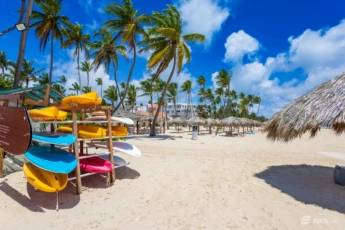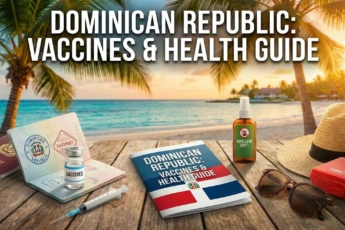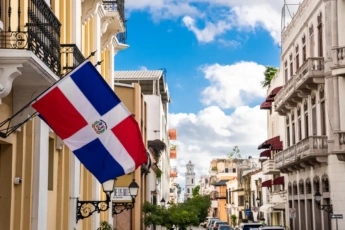National Holidays in the Dominican Republic - Celebrating Culture, Traditions, Top Events

Where to Spend New Year in the Dominican Republic 2026? – Popular Areas & Best Vacation Rentals
The Dominican Republic is a sought-after destination for travelers looking for a warm and lively place where they can spend New Year. With its stunning beaches, tropical climate, and welcoming culture, this Caribbean paradise offers a twist on traditional…
Read more
New Year’s Eve in Punta Cana 2026 – Best Accommodation Options, Top Excursions & Party Spots
New Year's Eve is a time of new hopes, dreams, and possibilities, and what better place to meet this festive moment than the tropical paradise of Punta Cana? With its white sandy beaches, paradise waters and sunny skies, it is…
Read more
Christmas in Punta Cana 2026 – Best Villas and Apartments, Popular Excursions, & Booking Tips
Spending Christmas in Punta Cana offers a unique twist on the traditional winter holiday, combining warm, tropical weather with the season's festive spirit. Known for its stunning beaches, luxury accommodations, and vibrant holiday events, Punta Cana has become a…
Read more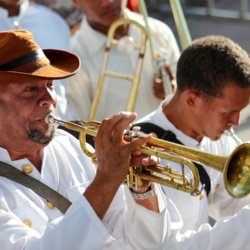
Dominican Republic Carnival 2026 – Dates, History, Facts, Traditions and Best Places to Celebrate
For those who want to decorate their lives with bright colors and enjoy incredible experiences, we recommend taking into account the carnival in the Dominican Republic in February. Traditionally, Brazil is considered the birthplace of carnivals. Lots of tourists…
Read more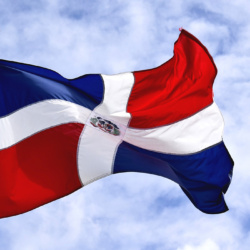
Holidays in the Dominican Republic – What and Where Dominicans Celebrate in 2026?
When, what and how do Dominicans celebrate? Which national holidays in the Dominican Republic are weekends, which are not? Which of them will be interesting for tourists to see? And what should you not come to? Read the answers…
Read moreCelebrating Culture and Tradition in the Dominican Republic
The Dominican Republic is a rich country known for its prosperous culture, breathtaking landscapes, and warm hospitality. National holidays here are not just days off; they are deeply rooted in history, tradition, and the collective identity of Dominicans.
Experience the rich cultural tapestry of the Dominican Republic through its national holidays, which reflect its storied past and dynamic present.
What makes the Dominican national holidays unique?
The national holidays in the Dominican Republic provide an opportunity to delve into its heritage, celebrate milestones, and participate in lively events. Here’s what sets them apart:
- Rich historical significance. Many holidays commemorate pivotal moments in the country's history.
- Vibrant cultural expressions. Music, dance, and food are central to the celebrations.
- Community bonding. These holidays bring people together to honor shared traditions.
- Global influences. The blend of African, European, and Taino heritage shines through.
Whether you're visiting or a resident, these holidays offer a chance to immerse yourself in the spirit of the Dominican Republic.
Key National Holidays in the Dominican Republic
The Dominican Republic celebrates a variety of holidays throughout the year. Below is a detailed overview of some of the most significant ones:
Major National Holidays in the Dominican Republic
| Date | Holiday | Significance |
|---|---|---|
| January 1 | New Year's Day | Celebrates the start of the year with family gatherings and festive events. |
| January 6 | Epiphany (Three Kings' Day) | Marks the visit of the Magi to baby Jesus, celebrated with gifts and parades. |
| February 27 | Independence Day | Commemorates the country's independence from Haiti in 1844. |
| March/April | Good Friday | A solemn religious holiday observed during Holy Week. |
| May 1 | Labor Day | Honors workers and their contributions to society. |
| August 16 | Restoration Day | Celebrates the restoration of the republic in 1865. |
| December 25 | Christmas Day | A joyous occasion for celebrating with family and friends. |
Each holiday has its own unique customs and traditions, making them a highlight of Dominican life.
How Dominicans celebrate their national holidays
Every holiday in the Dominican Republic has its own flair and customs. Here’s what you can expect:
- Festive parades and events. Independence Day and Carnival feature vibrant parades with elaborate costumes.
- Religious observances. Good Friday and Three Kings' Day involve church services and spiritual reflection.
- Music and dance. Merengue, bachata, and salsa are central to celebrations, especially during Carnival.
- Traditional food. Dishes like sancocho, pastelitos, and sweet desserts are staples during holidays.
Whether it’s a solemn religious day or a lively festival, Dominicans celebrate with passion, pride, and a deep sense of community. Their celebrations are vibrant expressions of their cultural heritage – with music, dancing, and traditional foods that unite families and friends. Each occasion has unique customs and rituals, creating a rich tapestry of traditions that reflect the country’s history, faith, and love for life.
Unique traditions and festivities of the DR
Beyond the national holidays, there are local celebrations that add to the cultural richness of the Dominican Republic. These include:
Local Dominican festivals and cultural events
| Event | Description |
|---|---|
| Carnival | Held every February, featuring colorful costumes, masks, and lively parades across the country. |
| Merengue Festival | A celebration of Dominican music and dance, usually in July or August. |
| Patron Saint Festivals | Local towns honor their patron saints with processions, music, and feasts. |
| Semana Santa (Holy Week) | A week of religious devotion culminating in Good Friday and Easter Sunday. |
These events showcase the diverse and vibrant traditions of the Dominican people.
Tips for visitors during national holidays
If you’re planning to visit the Dominican Republic during a holiday, here are some tips to make the most of your experience:
- Plan ahead. Book accommodations and tours early, as popular destinations can fill up quickly.
- Join the festivities. Participate in parades, try local foods, and enjoy live music.
- Respect traditions. Understand the cultural significance of holidays and participate respectfully.
- Stay safe. Crowded events may require extra precautions to ensure a safe experience.
Embrace the holiday spirit and immerse yourself in the rich culture of the Dominican Republic.
When to visit for the best holiday experience
The best time to visit the Dominican Republic depends on which holidays or events you’d like to experience. Here’s a quick guide:
Holiday seasons and their highlights in the DR
| Season | Highlights |
|---|---|
| Winter (December – February) | Christmas, New Year, and Carnival festivities. |
| Spring (March – May) | Semana Santa and Easter celebrations. |
| Summer (June – August) | Merengue Festival and local Patron Saint festivals. |
| Fall (September – November) | Quieter months with fewer crowds but ongoing local events. |
No matter the season, the Dominican Republic offers unique cultural experiences throughout the year.
Keynotes
National holidays in the Dominican Republic are more than dates on a calendar; they are windows into the soul of a vibrant and diverse nation. Whether you’re exploring its history, enjoying festive parades, or savoring traditional dishes, these celebrations offer unforgettable memories. Plan your visit to coincide with a national holiday and experience the heart of Dominican culture!
Frequently asked questions about
National Holidays in the Dominican Republic
1. What are the top 3 holidays in the Dominican Republic?
The Dominican Republic is known for its vibrant and culturally rich celebrations. The top three holidays include:
- Independence Day (February 27). Celebrated to honor the country’s independence from Haiti in 1844, this day features parades, flag-raising ceremonies, and cultural events. The capital city, Santo Domingo, hosts grand celebrations, including military displays and concerts.
- Dominican Republic Carnival (February). Held throughout February, with the climax around Independence Day, this is one of the most colorful and joyous celebrations. Each city has its own carnival traditions, but the parades are filled with lively music, elaborate costumes, and traditional characters like “Diablos Cojuelos” (Limping Devils).
- Christmas and New Year’s Eve (December 24–January 1). Christmas in the Dominican Republic is a family-centered holiday marked by feasts, religious services, and “Aguinaldos” (caroling). New Year’s Eve celebrations in places like Punta Cana are more lively, featuring beach parties, fireworks, and luxury dinners.
2. What national holiday is today in the Dominican Republic?
To find the current national holiday in the Dominican Republic, you would need to check the local calendar. However, here are the major public holidays observed each year:
Main national holidays in the Dominican Republic
| Holiday | Date | Details |
|---|---|---|
| New Year’s Day | January 1 | A time for family gatherings and celebrations marking the start of the new year. |
| Independence Day | February 27 | Celebrates independence with parades and cultural events. |
| Restoration Day | August 16 | Marks the start of the Dominican Restoration War in 1863. |
You can also visit official government or holiday-specific websites for daily updates.
3. How many public holidays are there in the Dominican Republic?
The Dominican Republic observes 13 public holidays annually, including both fixed and movable dates. Movable holidays, such as religious events, follow the liturgical calendar and may change each year. Here’s a summary:
Public holidays in the Dominican Republic
| Holiday type | Number | Examples |
|---|---|---|
| Fixed Holidays | 9 | Independence Day, Christmas, etc. |
| Movable Religious Holidays | 4 | Good Friday, Corpus Christi, etc. |
4. How do Dominicans celebrate holidays?
Dominicans celebrate holidays with a mix of religious devotion, cultural traditions, and lively festivities. Common practices include:
- Religious ceremonies. Many holidays, such as Christmas and Easter, begin with church services and prayer.
- Family gatherings. Dominicans highly value family. Holidays often involve large gatherings with shared meals, featuring traditional dishes like lechón asado (roast pork), sancocho (stew), and pasteles en hoja (plantain wraps).
- Parades and music. For events like Independence Day and Carnival, expect parades filled with traditional merengue and bachata music, elaborate costumes, and street dances.
- Beach parties and festivals. Holidays like New Year’s Eve often include fireworks, beachfront parties, and local festivals, especially in tourist hotspots like Punta Cana.
5. What is the biggest celebration in the Dominican Republic?
The Dominican Republic Carnival is arguably the biggest and most iconic celebration. Taking place throughout February, it is a month-long festival of music, dance, and tradition, culminating on Independence Day, February 27. Each region brings its unique flavor to the carnival, with Santiago and La Vega hosting some of the most famous parades. Highlights include:
- Traditional characters. “Diablos Cojuelos” and other folkloric figures.
- Music. Live merengue and bachata performances.
- Community participation. Everyone from locals to tourists joins the festivities.
Other large-scale celebrations include Easter Week (Semana Santa) and New Year’s Eve in tourist destinations like Punta Cana.
6. What is the Dominican Republic like for holidays?
The Dominican Republic is a premier holiday destination known for its tropical climate, pristine beaches, and vibrant culture. Here’s what makes it special:
- Places like Punta Cana, Bávaro, and La Romana are popular for their luxury villas, all-inclusive resorts, and turquoise waters.
- Visitors can explore colonial landmarks in Santo Domingo, the first city of the Americas, or participate in cultural festivals like Carnival.
- Activities such as ziplining, hiking in the lush mountains, exploring caves, or snorkeling in coral reefs are common.
- Holidays are marked by warm, lively celebrations, whether it’s dancing merengue during Carnival or enjoying fireworks on New Year’s Eve.
- Dominican food like mangu (mashed plantains), lechón asado (roast pork), and tostones (fried plantains) is a highlight for visitors.
7. What is the holiday on May 30th in the Dominican Republic?
May 30th is Día de la Libertad (Freedom Day) in the Dominican Republic. This date commemorates the assassination of dictator Rafael Trujillo in 1961, marking the end of his 31-year oppressive regime. While it’s not a public holiday, it is a significant historical date, often remembered with reflection on the country’s democratic progress.
8. Who is the most famous person in the Dominican Republic?
The Dominican Republic has produced many notable figures, but the most famous is arguably Juan Marichal, a Hall of Fame Major League Baseball (MLB) pitcher. Known as “The Dominican Dandy,” Marichal’s legacy extends beyond sports, symbolizing national pride.
Other well-known figures include:
- Oscar de la Renta is an internationally acclaimed fashion designer.
- Julia Alvarez is a celebrated author of books like In the Time of the Butterflies.
- Juan Luis Guerra is a Grammy-winning musician known for his merengue and bachata hits.
9. Which sport is #1 in the Dominican Republic?
Baseball is the #1 sport in the Dominican Republic. It’s not just a pastime but a passion deeply ingrained in Dominican culture. The country is renowned for producing world-class MLB players such as:
- David Ortiz (“Big Papi”)
- Albert Pujols
- Vladimir Guerrero
Baseball games, from local matches to professional leagues, are widely celebrated, and the country boasts modern stadiums and training academies.
10. What is the most important holiday in the Dominican Republic?
The most important holiday is Independence Day on February 27. It not only commemorates the country’s independence from Haiti in 1844 but also marks the grand finale of the month-long Dominican Republic Carnival.
Key highlights of Independence Day include:
- Patriotic parades. Featuring military processions and cultural displays.
- Cultural events. Celebrations in cities like Santo Domingo and Santiago emphasize Dominican history and pride.
- Carnival festivities. Vibrant parades and music bring communities together to close the Carnival season.
11. What is the most visited city in the Dominican Republic?
The most visited city in the Dominican Republic is Punta Cana. Located on the eastern coast, it is a top destination for tourists due to its:
- Over 30 miles of white sandy beaches with turquoise waters, including Bávaro and Macao beaches.
- Luxury of all-inclusive resorts and vacation rentals.
- Water sports, golf courses, and excursions like visiting Saona Island or exploring cenotes.
- The Punta Cana International Airport (PUJ) is the busiest in the country, offering direct flights from major cities worldwide.
Other notable cities include Santo Domingo (for cultural and historical experiences) and Puerto Plata (known for its beaches and adventure tourism).
12. What is the national festival of the Dominican Republic?
The Dominican Republic Carnival is considered the national festival. It takes place throughout February, culminating on Independence Day (February 27).
Key features of the Carnival include:
- Colorful costumes. Characters like the “Diablos Cojuelos” (Limping Devils) wear vibrant, elaborate masks.
- Music and dance. Merengue and bachata dominate the streets during parades and celebrations.
- Regional variations. Cities like La Vega, Santiago, and Santo Domingo each have unique Carnival traditions.
This festival celebrates Dominican culture, history, and folklore, attracting both locals and tourists.
13. What language is spoken in the Dominican Republic?
The official language of the Dominican Republic is Spanish. However:
- Dominicans speak a distinct Caribbean Spanish dialect, characterized by unique pronunciations and idiomatic expressions.
- English is widely understood in popular tourist destinations like Punta Cana, Santo Domingo, and Puerto Plata, especially in hotels and resorts.
- Creole is spoken by Haitian immigrants, and there are small communities where other languages like Italian and French are used.
14. What is the holy week in the Dominican Republic?
Holy Week (Semana Santa) in the Dominican Republic is a significant religious and cultural event. It usually takes place in the week leading up to Easter Sunday.
Key traditions during Holy Week include:
- Processions, church services, and reenactments of the Passion of Christ.
- Many Dominicans travel to the countryside or beach with family during this time.
- Alcohol sales and certain public events may be limited, especially on Good Friday, to maintain the solemnity of the occasion.
- Celebrations often include family feasts with traditional dishes.
15. What are the traditions of the Dominican Republic?
The Dominican Republic’s traditions are deeply rooted in its blend of Taino, Spanish, and African cultures. Key traditions include:
- Merengue and bachata – these musical styles are a cornerstone of Dominican culture, often performed during festivals and gatherings.
- Carnival is one of the most vibrant celebrations, featuring parades, costumes, and folklore.
- Religious celebrations. Events like Christmas, Holy Week, and Patron Saint Days are marked by processions, prayer, and communal meals.
- Dishes like sancocho (meat stew), mangu (mashed plantains), and arroz con habichuelas (rice and beans) are integral to celebrations.
- Baseball – beyond a sport, it is a cultural tradition, with games and fanfare uniting communities.
- Dominicans place a strong emphasis on family gatherings and community bonds, often expressed through shared meals and festivities.

